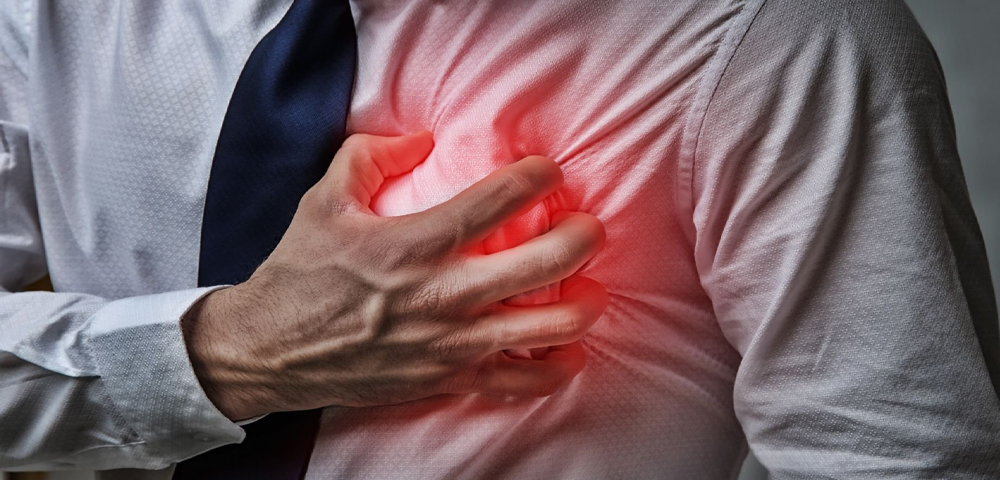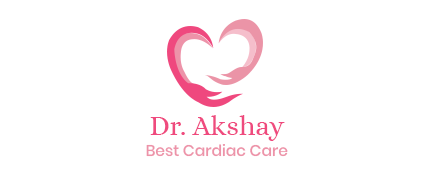
What is a Heart Attack?
A heart attack, or myocardial infarction, occurs when blood flow to the heart is blocked. This blockage damages heart tissue. It is usually caused by plaque buildup in the arteries. When plaque ruptures, it forms a clot that stops blood flow. This can be life-threatening. Seeking immediate medical care is crucial to restore circulation and prevent severe damage.
Dr. Akshay Kashid, a leading
has over 13 years of experience. He specializes in heart care and provides expert treatment for heart attacks.
Causes of Heart Attack
- Atherosclerosis: Plaque buildup narrows arteries, increasing the risk of clots.
- High Blood Pressure: Constant pressure damages blood vessels, making them prone to blockages.
- High Cholesterol: Excess LDL cholesterol leads to plaque formation in arteries.
- Smoking: Damages blood vessels and speeds up atherosclerosis.
- Diabetes: High blood sugar inflames and weakens blood vessels.
- Unhealthy Lifestyle: Poor diet and inactivity contribute to obesity, high cholesterol, and high blood pressure.
Signs of a Heart Attack
There are many symptoms of heart attack, but the common ones include:
Chest Pain or Discomfort: This is usually described as tightness, pressure, or squeezing in the chest.
Pain Radiating to Other Areas: The pain may radiate to the shoulders, arms (especially the left arm), back, neck, jaw, or stomach.
Shortness of Breath: Difficulty breathing, even when at rest or with minimal physical exertion.
Cold Sweats: Sudden and unexplained sweating, especially without physical activity.
Dizziness or Lightheadedness: A feeling of faintness or loss of consciousness.
Nausea or Vomiting: Feeling nauseated, similar to indigestion or an upset stomach.
It is important to note that the symptoms may vary from person to person, especially in women, who may present with less apparent symptoms like fatigue or nausea.
Treatment of Heart Attack by Dr. Akshay
Dr. Akshay provides the best treatment for heart attacks. The treatment process involves:
Emergency Care: Thrombolytic therapy (clot-busting drugs) or Percutaneous Coronary Intervention (PCI), which includes angioplasty and stent placement to open up the blood flow to the heart.
Medications: Drugs such as aspirin, blood thinners, and beta-blockers are administered to prevent clotting, slow the heart rate, and avoid further damage to the heart muscle.
Surgical Treatment: If the blockage is severe, the doctor may suggest CABG surgery to bypass blood flow to restore heart function.
Cardiac Rehabilitation: After the attack, rehabilitation is important for a patient’s recovery by conducting supervised exercise, education, and emotional support.
What Dr. Akshay offers for Heart Attack treatment?
Advanced Diagnostics: Using tools like ECG, stress tests, and angiography to assess the extent of the heart attack and determine the appropriate treatment plan.
Emergency Care: Immediate interventions, including medications to dissolve blood clots, or procedures such as angioplasty, to restore blood flow to the heart.
Medications: Prescribing essential medications, including antiplatelets, blood thinners, and beta-blockers, to reduce further damage and stabilize the heart.
Rehabilitation and Monitoring: Post-heart attack rehabilitation programs to strengthen the heart and monitor recovery, ensuring proper lifestyle adjustments to prevent future cardiac events.
Lifestyle Education: Dr. Akshay provides guidance on maintaining heart health through diet, exercise, stress management, and managing risk factors like cholesterol and hypertension.
Why Choose Dr. Akshay Kashid for Heart Attack Treatment?
Dr. Akshay Kashid, a highly qualified Cardiologist specialist and one of the best Cardiologists in Baner, Pune, specializes in heart care and is dedicated to providing personalized and effective heart attack treatment. He takes a holistic approach to cardiac care, combining the latest medical techniques with a patient-first, compassionate approach.
Advanced Diagnosis
With advanced diagnostic tools such as ECG, angiography, and stress tests, the severity of a heart attack can be accurately assessed, enabling treatment plans that are specifically tailored to the patient’s needs.
Comprehensive Care
Dr. Akshay offers holistic care that covers emergency treatment through to ongoing rehabilitation, ensuring continuous monitoring and personalized attention for the best possible recovery.
Preventive Approach
In addition to immediate treatment, patients are educated on lifestyle changes and preventive measures that help minimize the risk of future heart attacks.
FAQ's
Ans: Causes include plaque buildup in arteries, blood clots, high blood pressure, high cholesterol, smoking, and obesity.
Ans: Symptoms include chest pain, shortness of breath, nausea, lightheadedness, and pain radiating to the arm, jaw, or back.
Ans: Immediate treatment includes medications to dissolve clots, pain relief, and in some cases, surgical procedures like angioplasty or bypass surgery.
Ans: Recovery varies but can range from a few weeks to several months depending on the severity of the heart attack and the individual’s health.
Ans: Early treatment and quick action in emergency situations significantly reduce damage to the heart muscle.
Ans: Long-term effects may include reduced heart function, arrhythmias, and increased risk of another heart attack.
Ans: Yes, a healthy lifestyle that includes exercise, a balanced diet, and smoking cessation can significantly reduce the risk.
Dr. Akshay Kashid is highly recommended for heart attack management in the Baner-Balewadi region, with extensive experience in dealing with cardiac emergencies.
